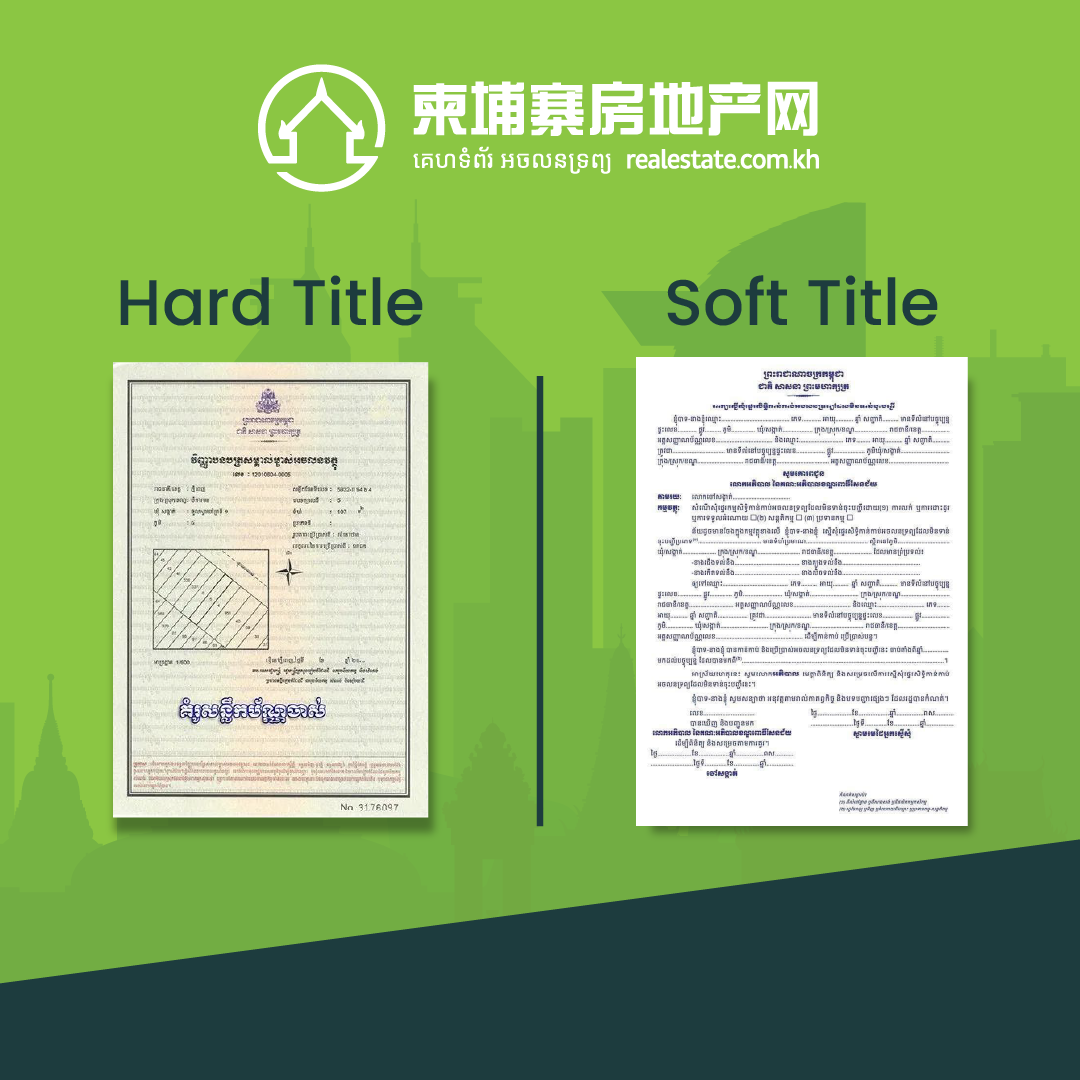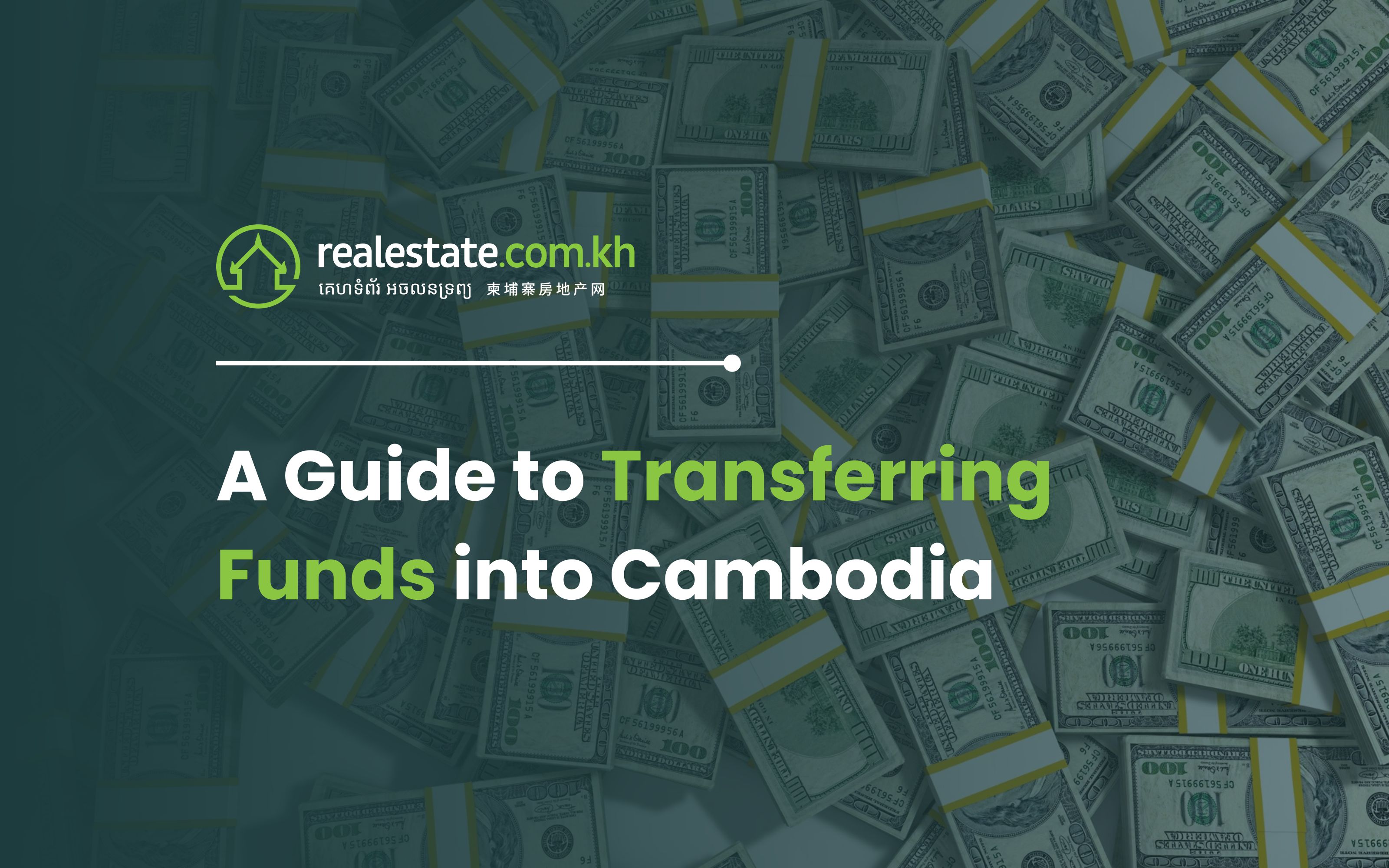When buying houses or land in Cambodia, you often encounter two types of property rights: "hard titles" and "soft titles." So what exactly are hard titles and soft titles and what are the differences between the two? Why does the same piece of land have different types of property rights, and what should investors pay attention to in the selection process? In this article, we will provide an overview of property rights in Cambodia.
History of Land Ownership in Cambodia
First and foremost, understanding Cambodia's history is crucial for investors to interpret land ownership in the country correctly. Cambodia has had a turbulent past, with the impacts of the Khmer Rouge and years of civil war still evident in various aspects, notably in the real estate market. Between 1975 and 1979, the Khmer Rouge abolished private property ownership and destroyed all official property records. At that time, all land belonged to the state and not to individuals. Even after the fall of the Khmer Rouge, property ownership remained unrecognised for the following decade, and all property was considered government-owned. It wasn't until 1989 when Cambodia enacted the "Land Law" that private land ownership was restored. In 2001, Cambodia issued a revised version of the "Land Law," which established a land registration system, allowing individuals to register their land within a legal framework and obtain recognition at the national government level. This law is still in effect today. Registering land in Cambodia is a complex and challenging task, especially when many property ownership documents have been destroyed or are insufficient. As a result, a multi-tiered system has developed, where different types of property rights represent different levels, mainly determined by the level of government where the land/property is registered.
What is a "Hard Title"?
"Hard Title" refers to a property ownership certificate issued by the Ministry of Land Management, Urban Planning, and Construction (MLMUPC) in Cambodia. The land details are certified at the national level, making it the most secure and advantageous form of property ownership in Cambodia. The transfer of "Hard Title" requires a 4% transfer tax and typically takes about 4 to 6 weeks to process.
What is a "Soft Title"?
"Soft Title" is obtained from the local district/county office and is not at the national level, but is still considered a form of property ownership. "Soft Title" is widespread in Cambodia, with around 70% of properties in major cities having this type of ownership, and the number goes up to 80% in rural areas. The process of obtaining a "Soft Title" is relatively quick, usually taking only about 10 working days.
What are the Advantages and Disadvantages of "Hard Title" and Soft Title?
|
Property Title Type |
Advantages | Disadvantages |
| Hard Title |
- Recognized at the national level. |
- Limited availability of properties with hard rights. |
|
- Clear and indisputable property rights. |
- Complex transaction procedures. |
|
|
- Can be used for mortgage loans. |
- Incurs a 4% transfer tax. |
|
|
- Lower prices. |
- Only recognized at the local level. |
|
|
- Risks of boundary overlaps. |
||
| Soft Title |
- Cheaper prices. |
- Limited availability of optional properties. |
|
- More convenient transfer procedures. |
- Tedious processing. |
|
|
- Avoidance of the 4% transfer tax. |
- Not eligible for mortgage loans. |
What Is The Difference Between Both?
The fundamental difference between hard titles and soft titles lies in the ownership certificates provided by different authorities. "Hard titles" refers to ownership certificates issued by the National Land Management Planning Bureau, while "soft titles" refer to ownership certificates provided by local district or county offices. Having "hard titles" means you are the complete owner of the land, with rights to possess, use, profit from, and dispose of the land. "Hard titles" are the most secure and reliable form of property rights. The new version of the hard card can be scanned with its attached QR code to obtain detailed information about the land, including its location, dimensions, size, and the name of the landowner, among other accurate details. On the other hand, "soft titles" means you are only a legal occupant of the land and do not have sufficient evidence to claim full property rights. This is why in cases where two landlords claim the same piece of land, the one with "soft title rights" will eventually lose the land. "Soft titles" also carry the risk of incorrectly defined boundaries or overlapping with neighbouring plots. However, it's worth noting that "soft titles" are not without advantages. Compared to "hard titles," the process of obtaining "soft titles" is more cost-effective. To avoid transfer taxes, many real estate transactions are still conducted using "soft title rights."
How to Distinguish Between Genuine Hard Title and Soft Titles?
To ascertain the authenticity of property rights or avoid a situation where a piece of land has both hard and soft titles rights, buyers can obtain the property rights certificate and its copies from the landlord, and then conduct investigations and verification through registration with the Ministry of Land and Resources, Urban Planning and Construction Department, and the local land management office. You can also research the history of the land, such as how many times it has changed ownership and whether each transfer followed the legal procedures strictly, whether taxes were paid on time, etc., to verify the legitimacy of the soft title rights held by the landlord.
In Cambodia, land registration officials handle hard property cards based on regions. For instance, when it's time for a village to apply for hard property cards, all villagers will be notified to come and register. You can inquire with neighbours whether they possess a hard title. If any of these neighbours have hard titles, it indicates that the government has issued hard title rights for that area.
What If the Property/Land Only Has A Soft Title?
A soft title is worth considering, depending on how you plan to deal with the property. For example, a popular trend is to renovate old properties and then resell them at a higher price, with the goal of not holding onto the property for the long term but rather making a quick resale. If you intend to hold onto the property for the long term or invest a significant amount of money into it, then a hard title would be a better choice as it offers more security. Furthermore, many soft titles can be converted into hard titles, so you can inquire about the possibility of converting them before making a down payment.
If you are new to Cambodia's property market, speak to our real estate expert today. At Realestate.com.kh, we provide free viewing and consultation with accurate and latest information when it comes to properties tailored to your needs.
If you are interested in finding properties in Cambodia, we have 50,000 listings on our website, feel free to contact us for a free view and consultation here





Comments